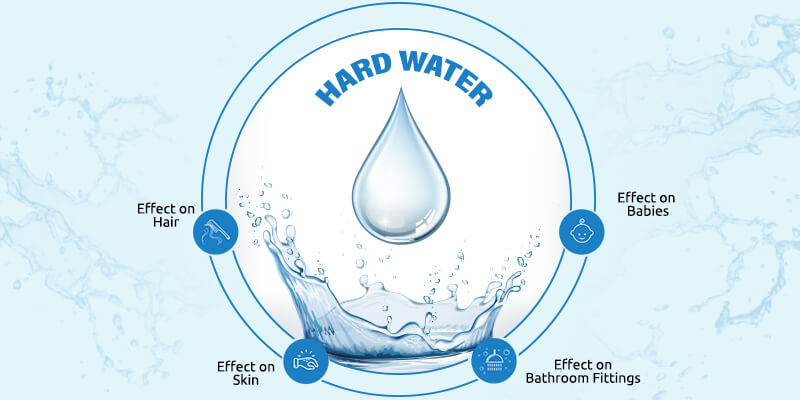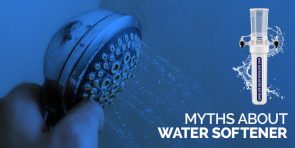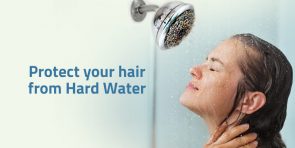Everything you Need to Know about Hard Water and Water Softeners
Hard water is water that has an excess of minerals like calcium and magnesium in it. Infiltration through deposits made of calcium and magnesium sulfates, carbonates, and bicarbonates, add the excess amount of minerals in the water, thus making it hard. A high level of hardness in water can lead to various problems including plumbing issues, scaling on bathroom fittings, clogging of pipes, dry skin, acne, hair loss, and baby skin rashes. Read on to know more about hard water problems, why you should care, and the solution to all these hard water woes.
What is hard water?
Simply put, hard water is the type of water that contains a high level of mineral content in it. At homes, hard water causes many harmful effects related to skin, hair and even equipment or machinery it stays in contact with for a long time. Though minerals are considered good for health, more than the required amount can cause damage, which is why the usage of hard water daily is problematic.
Causes of water hardness
When water infiltrates through deposits that are made of calcium and magnesium sulfates, carbonates and bicarbonates, it increases the level of hardness in it. The hardness of water can be classified into two types – temporary hardness and permanent hardness. Temporary hardness of water is caused by dissolved bicarbonate minerals. As the name suggests, the temporary hardness of water is easier to get rid of. On the other hand, the permanent hardness of water is caused by the presence of either calcium sulphate, calcium chloride, magnesium sulphate, and magnesium chloride. Permanent hardness of water is a more serious issue and can only be removed using a water softener.
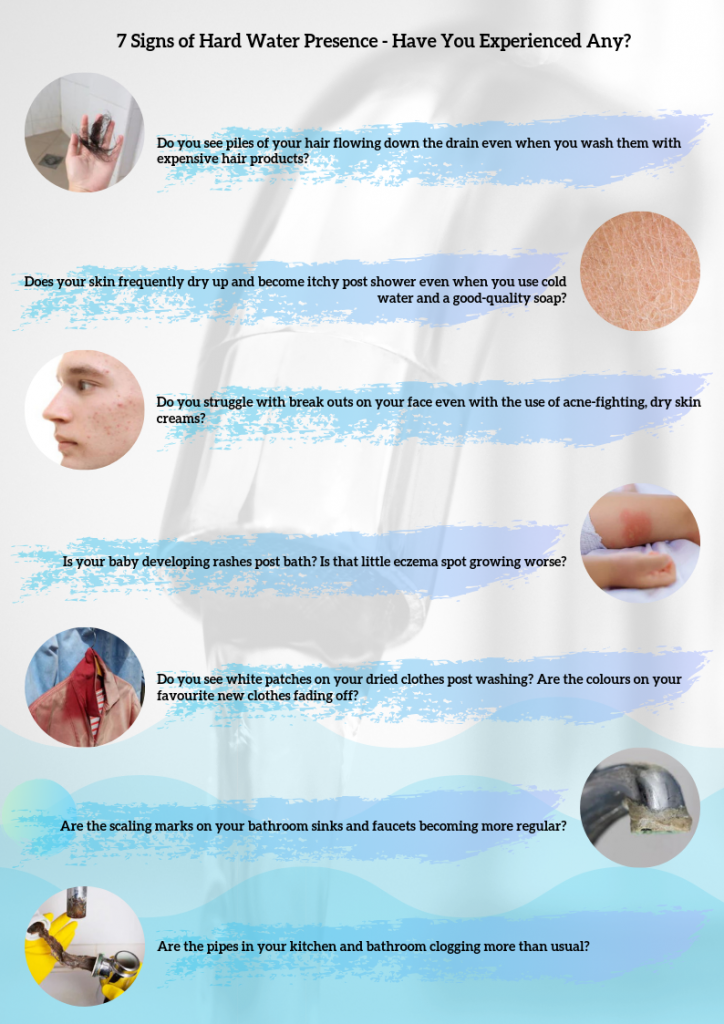
Identifying the presence of hard water
There is a high chance that you are dealing with the adverse effects of hard water in your home, but you do not know the symptoms. There are many signs that point towards the presence of hard water in your home. Some of these signs are so common that putting the blame on hard water seems like one of the last options. But that is where we make a mistake. We account for every issue but the most obvious one.
Some of the most noticeable signs of hard water in your home’s water supply are:
- Excessive hair fall
- Dry and itchy skin
- Fading of clothes post-wash
- Clogged pipes
- The scale on bathroom sinks and faucets
We turn to a new shampoo for hair fall, a more expensive moisturizer for the skin, a better detergent for the clothes, regular cleaning for scale, an appointment with the plumber for clogged pipes, but we fail to realise the underlying cause of all these problems – HARD WATER.
How To Measuring the amount of hardness in water
Once you figure out that the water you are using for everyday chores is hard, it is important to check the level of hardness in the water to understand the kind of impact it has on your everyday activities. Water hardness measurement units are typically counted in parts per million (ppm) of Calcium Carbonate equivalent or milligrams CaCo3 per liter. Very hard water contains 350 Calcium Carbonate (mg/l) ppm, hard water contains 250 Calcium Carbonate (mg/l) ppm and soft water contains 75 Calcium Carbonate (mg/l) ppm. The vast difference in the quantity itself helps us understand how adversely hard and very hard water can affect our health.
The symptoms of hair fall, dry skin and corrosion points toward the presence of hard water in your home but to measure the hardness of water, call a professional. KENT offers free water hardness test for homes and offices, where professionals test the level of hardness in your water and help you with the right solution.
Harmful effects of hard water
From adults to babies, from clothes to hardware fittings, the excessive minerals in hard water can affect the softest of skins and the toughest of metals. Hard water can make your skin and scalp dry and itchy, can cause hair loss, can develop rashes on your baby’s skin, can fade your clothes and can cause damage to your bathroom fittings. There is little awareness that water can cause these problems.
Effects of hard water on hair and skin
From skin rashes to eczema, from dry scalp to hair loss, hard water could be a cause of a lot of skin-related problems. Unfortunately, checking the quality of our water is the last thing that comes to our mind when we develop these skin and hair related issues. Instead, we invest in costlier products and treatments for our skin and hair. There are days when you may not use cosmetic products, but water touches our skin and hair every day.
1. Skin problems
Breakout, acne, skin rashes, eczema and skin irritation are some of the most common consequences of using hard water on your skin. Hard water makes it difficult for soap to lather, and it also makes it tough for you to clean the soap scum left on your skin which provides a breeding ground for bacteria. When it comes to more serious problems like eczema and psoriasis, hard water tends to aggravate these issues.
2. Hair problems
Using hard water to wash your hair can cause damage, as hard water doesn’t let the shampoo to lather, making it difficult to rinse off the dirt and leaving the residue on your scalp. This damage can dry out your scalp and eventually cause hair fall. Hard water can also fade your colored hair faster.
Is hard water bad for babies?
When it comes to taking care of our baby, we use the most trusted products, the softest fabrics, the safest consumables, even check the bottled milk on our own hand before feeding. But what we forget to check is the most basic, most regularly used element – water. Agreed, we use RO and even double boil the water our baby drinks, but what about the water the baby bathes in? What about the water we wash the baby’s clothes in? These seemingly harmless uses of regular water for our baby’s needs are usually the ones causing the most issues. If you are regularly using hard water for your baby’s shower and to wash the baby’s clothes in, your baby can develop skin problems that may become eczema. In a study done by King’s College, London, it was found that Hard Water can increase the chances of eczema in babies.
Effects of hard water on Clothes
Hard water doesn’t blend well with detergent, causing lack of lathering, eventually using more detergent than required. This excess detergent then stays on your clothes, leads to skin irritation when you wear these clothes. Other adverse effects of hard water on your clothes include greying or yellowing of clothes, clothes becoming hard in texture and visibility of white marks on dark clothes. All these issues are common but not a lot of people know that the cause is hard water.
Effects of hard water on plumbing system
Clogging of pipes on a regular basis is one of the most initial signs of hard water supply in your home. The regular plumbing needs in your house are caused by use of hard water over a long period of time. The high level of calcium and magnesium in hard water starts building up inside your home’s pipes, resulting in lower water pressure, clogging the pipes. The mineral in hard water also deposits around the sinks and faucets in your home as scale. This scaling gets more and more visible with a higher level of hardness in the water.
How to get rid of hard water?

The best solution to getting rid of hard water effects is installing a water softener in your house. But before installing a product that would work on the water you use regularly it is important that you understand what a water softener exactly is. Once you have a fair idea about what is a water softener and its working mechanism, you need to decide which one you need for your home since there are different types of water softeners available as per different needs.
Also Read: Different Types of Water you Need to Know
What is a water softener?
A water softener removes excess minerals such as calcium and magnesium from hard water, using different techniques like ion-exchange technique, salt-free technique, magnetic and electronic technique, eventually producing soft water for safer use.
4 Different types of water softeners
1. Ion Exchange water softeners
Ion exchange water softeners have salts that replace calcium, magnesium, sodium ion, and other hard minerals that make water hard. The resin beads in the water softeners soften hard water by substituting excess calcium, magnesium, and iron with salts. You can connect an ion exchange water softener to the plumbing systems of your home. These do not use any electricity.
Also Read: Easy and Simple Ways to Save Electricity Bill
2. Salt-free water softeners
Salt-free water softeners use potassium chloride to make water soft. These water softeners do not remove the excess minerals in the water, but instead neutralize them, thereby retaining the minerals in the water that are beneficial. Though not as effective as ion exchange water softeners, salt-free water softeners are perfect for people who are worried about sodium intake. These water softeners prevent mineral deposits on the surface of appliances.
3. Magnetic and electronic water softeners
Magnetic and electronic water softeners are mainly de-scalers. These water softeners reverse the electromagnetic properties of minerals that make water hard. The process of making water soft by magnetic and electronic water softeners ensures that the water pipes prevent the hard minerals from settling, thereby avoiding damage.
4. Dual tank water softeners
Recharging a water softener is essential for its smooth operation. However, during the recharging phase, the water softeners stop functioning. Dual tank water softeners have two tanks that work alternatively whenever there is a need for recharging.
Choosing the right kind of water softener
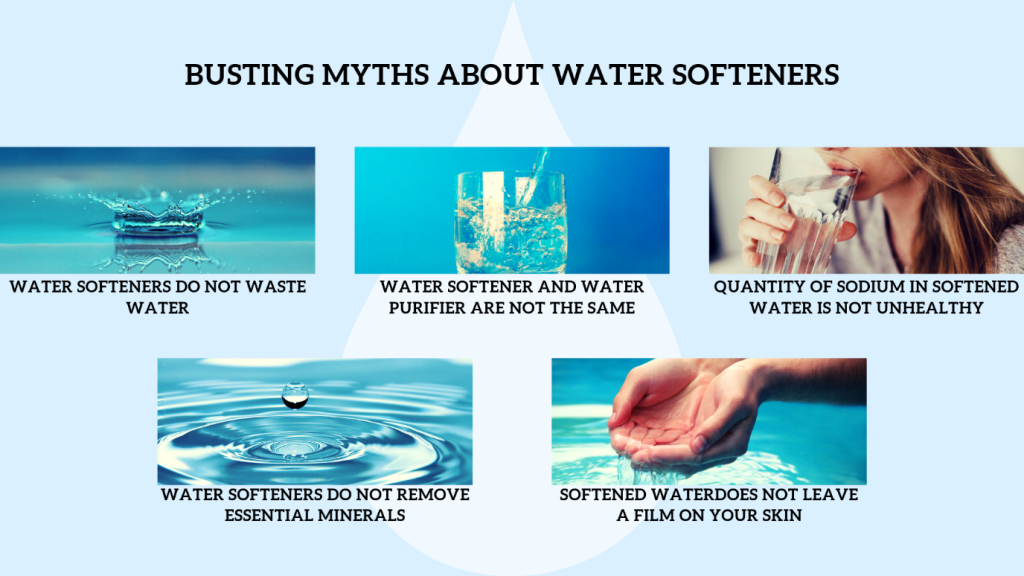
It is easier to select a water softener for the home depending on your specific needs and the level of hardness in your water supply. If you are only facing issues related to your clothes getting faded, discolored, or hard, you can invest in a washing machine water softener that directly provides soft water for your washing purposes. If you are facing issues with your skin and hair, you can install a bathroom water softener in your bathroom that would provide soft water for your bathing needs. If you are facing all the issues associated with the use of hard water, you can go for a whole-house water softener for your home that gets attached to the overhead tank of your house and provides soft water for your entire house.
Every problem related to the continual use of hard water can eventually burn a hole in your pocket as well, with the doctor visits, plumber needs, and spending extra on cosmetics.
KENT Best Water Softeners
KENT offers three kinds of water softeners for your hard water woes –
1. KENT Autosoft
A whole-house water softener that uses automatic regeneration for better water quality for your entire house that is directly connected to the overhead tank.
2. KENT Bathroom Water Softener
A compact water softener that uses an efficient ion-exchange process for individual bathrooms, installed in the geyser inlet line.
3. KENT Washing Machine Water Softener
A state-of-the-art water softener that uses a non-electric process that converts hard water into soft water, giving you more lather to wash your clothes using lesser detergent.
The best solution to get rid of hard water is by installing a water softener and the first step towards investing in the right solution is by calling a professional home to check the hardness of your water. Book a free visit from KENT where the professional will not just check the level of hardness in your water but will also suggest the right water softener for your home. KENT uses the best-in-class water softening techniques through its compact and easy-to-install water softeners that are perfect for both homes and offices.
More on hard water and water softeners
3 Possible Effects of Using Hard Water on Human Body
The Hidden Advantages of Using a Water Softener
A Handy Buying Guide for Water Softeners
Reasons why your Baby’s Clothes should be Washed in Soft Water


